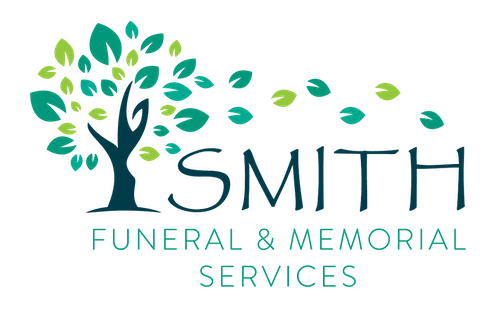Resources
Lending a Hand...
Looking for more information? Our funeral home is here to help guide you through this difficult time. This section contains helpful information to provide you with the following resources: Legal Advice, Grief Resources, and Veteran’s Information. The death of someone we care about can be indescribable. We are proud to provide these guides in order to help begin the healing process.
The Different Stages of Grief
Grief is a normal, human response to a significant loss. You may have friends that tell you to be strong, don’t cry and many other cliches when they can’t think of anything else to say, but all it does is prolong the grieving process.
The only way to deal with grief is to travel through it and work through the emotions that come with it, until you are able to come to peace and acceptance of your loss. It would be terrible to not cry when losing a loved one, and not to feel that sense of loss. Grief is painful, and one of the most difficult experiences you will go through. We can try to avoid the pain. We can try to get over it quickly, often it just does not work that way.
Veterans Information
Looking for more information on Veterans? The U.S. Department of Veterans Affairs has the answers you are looking for.

Legal Information
After the passing of a loved one, it is a good idea to let a lawyer figure things out. There are several important documents that you need to gather.
The time following a death of a loved one is extremely emotional, and even the closest family may have disagreements. To ensure lasting peace in the family, it is a good idea to let a lawyer figure things out.
After a death, there are many legal details to work out. While it is not necessary to work with a lawyer, it is strongly recommended.
Information to Gather
First, the Funeral Director will gather information required for the death certificate. This includes:
- Any wills that you are aware of
- Deeds
- Bank Statements
- Insurance Policies
- Vehicle and Boat titles
- Tax Documents
Bank Accounts
Procedures for bank accounts following death vary regionally. In some areas, bank accounts are automatically frozen after a death. To avoid any complications, the bank should be notified immediately. The bank employees will guide you through the next steps from there.
It’s recommended that a joint account stay open for at least six months to allow you to deposit any checks that are made out to the deceased. To take a name off a joint bank account, banks require a certified copy of a death certificate. If the deceased had a safety deposit box in a bank, the contents may be sealed after death and a certified copy of a death certificate will be required to gain access to the contents.
Veterans Information
For more information on Veterans, please contact the U.S. Department of Veterans Affairs has the answers you are looking for. From Headstones, Markers & Medallions, to Burial Allowance & even forms, you can find this resourceful information on their website at: www.va.gov. Here are a few links to get you started:
FAQ's
It is common to have questions about the funeral process. This section contains some commonly asked questions, to help make this process easier for you. If additional questions arise, please feel free to contact us directly at the funeral home.
A funeral is a ceremony for a deceased person, prior to burial or cremation. A funeral gives the opportunity for family and friends of the deceased to gather and mourn the passing of their loved one, to share cherished memories, and to celebrate their life. A funeral is a vital first step in helping the bereaved heal after the loss of someone special.
If no plan ahead has been made, the type of service is entirely up to you, but it is best to consider what the deceased may have wanted. Services are usually held at a funeral home or a place of worship. There are a wealth of different services, ranging from traditional religious or military services, to something a little more unique. Our funeral directors are more than happy to work with you to figure out what would be the most appropriate.
Of course you can! In fact, more and more people are opting for non-traditional, personalized services. There is no one way to celebrate somebody’s life. Let the funeral director know exactly what your desires are and they will honor your wishes.
It is highly recommended to have an obituary notice that is either posted in a local newspaper or online. An obituary lets the public know that a death has occurred, and provides them with information about the service. Obituaries generally include the deceased’s full name, age, city, and date of birth, as well as the city they were living in when they died. It also includes the name of the deceased’s spouse, along with the names of anyone else significant in their lives, such as parents, children, or grandchildren. Space may be limited in a newspaper obituary, but you might also wish to include a short sentiment on the life and legacy of the deceased. An online obituary or memorial website offers you the chance to add a lot more about the deceased.
Funeral directors are in charge of all the logistics following a death. They complete all the necessary paperwork, make arrangements for the transportation of the body, and put into action the choices made by the family in regards to the funeral service and the final resting place of the body. Beyond all of this, funeral directors are there to provide emotional support and personal guidance in the wake of a loss.
We are here to help. Funeral directors are available 24 hours a day, 7 days a week, and 365 days a year.
We can arrange to have the remains transported from anywhere in the world. We will assume responsibility and make the proper arrangements to have the remains return to the community.
Embalming sanitizes and preserves the body. It also slows down the decomposition process and enhances the appearance of a body impacted by a traumatic death or illness. Embalming gives time to the family of the deceased to arrange a service, and allows for the possibility of an open-casket viewing.
No. In fact, some religions forbid embalming. Some countries do require embalming by law in order for remains to leave or enter the country. If it is not against your religious custom, embalming is generally recommended, especially if there is an extended gap between death and burial or cremation.
The cost of the funeral depends on the services selected. The average cost of a funeral is between $5,000-$7,000; however, the most basic of services can cost as little as $1000. The cost includes all professional services including transportation, embalming and other preparations, the use of a facility for the ceremony, and the purchase of a casket or urn.
Funerals are labor intensive A funeral’s cost extends beyond the merchandise, and includes the services of the funeral director. Their role in making the necessary arrangements, filling out forms, and dealing with all the other figures involved after a death (doctors, lawyers, insurance companies). Funeral directors work an average of forty hours per funeral, and the cost of operating a funeral home is included as well. Funeral homes are a 24 hour operation, with extensive facilities that need to be maintained and secured.
Funeral Services in the United States are regulated by the Federal Trade Commission, they can be reached by telephone at 1-877-FTC-HELP (382-4357) or you can fill out a form online at www.ftc.gov. In Canada, funeral services are regulated provincially and this information can be found on the Canadian Consumer Information website at www.consumerinformation.ca.
Life after Loss
There is no way around the fact that life will look a little different after the loss of a loved one, whether it was an expected death or a sudden ‘shock’, the death of a loved one will change many things. Spouse, partner, parent, grandparent, sibling, child or friend – losing someone will change a lot of things you did not foresee: your daily routines, maybe your living or financial situation, your source of advice or calm, your plans for the future, your role as a husband, wife or parent. Having to move on without your loved ones is tough and involves many moving parts. It can be very helpful to try to reframe the sadness and feeling of loss into an appreciation of the time that you had with them and a celebration of the life they lived, and how they impacted the people around them.
Anniversaries & Holidays
Use grief as an invitation to remember your loved one, not forget them. You can use important days on the calendar to celebrate their life rather than grieve their loss. On your loved one’s birthday still make their favorite cake and smile as you remember the joy it would bring them, at the holidays feel free to make changes if they feel right to you, but if they don’t, then don’t make them. If you want to make stuffing at Christmas the way Dad always loved it then go ahead, who cares if no one else likes it – if it comforts you then do it.
You will be able to identify many occasions on which you miss your loved one, for the list is long.Think of all the days in particular throughout the year that could be hard because you miss the person: a special birthday, Valentine’s Day, Mother’s Day, Father’s Day, Easter, the first day of spring, or the opening of the football or sport season; the first weekend at the cottage or trailer; the summer holidays; Thanksgiving, Christmas – and more. Then add all the special occasions like weddings, family get togethers, weekends. These can be difficult because they remind us of better days when the person was here, as compared to THIS day where they are not. But try to remember and treasure what you had, and what you still have – the memories and the love that will live on in your heart forever.
You're not Alone
Although loss is a very personal emotion it is not one you have to experience alone. You should be able to speak to your friends and family about how you feel, you may often find that they may also open up to you about a loss they experienced and how they worked their way through it. When you lose a significant person from your life, whatever the relationship, it hurts and nothing takes away from your right to feel the loss and grief grieve the absence of that person from your life. There is no right and a wrong way to grieve – ‘right’ is whatever is the best and most helpful way FOR YOU, not how you grieve compared to someone else. Be willing to talk to your friends and family about how you feel, and what you need from them. Speaking fondly about your loved one will encourage similar stories from other family members and friends, turning grief into remembrance and celebration of a live well lived.

